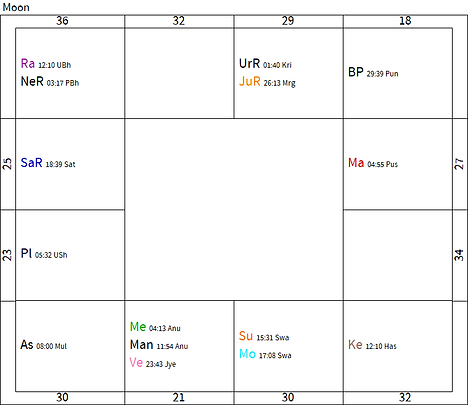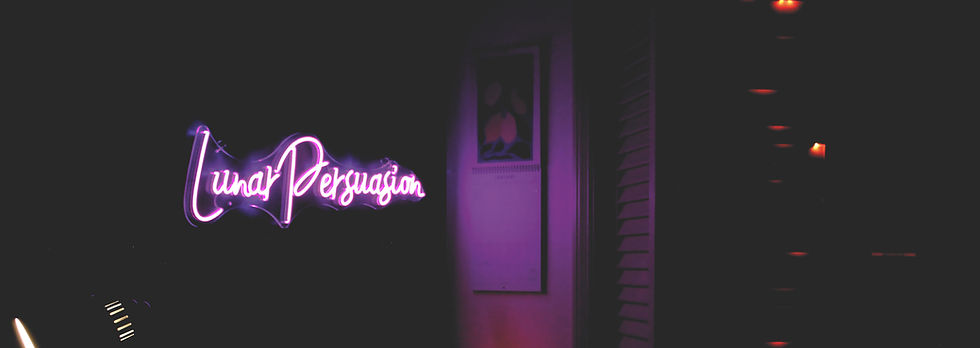
Pluto's Nuclear Family
Pluto's discovery in 1930 coincided with one of humanity's most transformative experiments - not just in physics, but in how we structure family itself. To understand this, we need to look at how a single planet's movement through the zodiac shaped entire generations.
An undiscovered Pluto traveled through Gemini during a time when TV, Radio, and communications were being radically transformed. On January 23, 1930, Pluto was discovered using photographic plates by Clyde Tombaugh while working at the Lowell Observatory, and it was officially declared a planet a few weeks later.
As Pluto moved through the sign of Cancer from the late 1930s to the mid-1950s, the curious phrase nuclear family emerged. The introduction of this term was more than just a label for an already typical family structure. The word 'Family" has existed since the early 15th century, and its meaning has evolved. The concept of the perfect nuclear family was propagandized and weaponized by the newly empowered media to enforce an anti-communist narrative.
The transformations around communication and how information was shared when Pluto was in Gemini and is now in Cancer evolved into a machine that manufactured motherhood and family as if they were commodities. The word "nuclear" coincides with the innovations of atomic energies and the discovery of Pluto. Cancer, ruled by the Moon, signifies Mother and is the natural sign of the Fourth House, representing home and peace of mind. Pluto is a radically transformative planet that restructured the family model, specifically the nuclear family, in pursuit of the American Dream.
As Pluto moved through the sign of Cancer from the late 1930s to the mid-1950s, the curious phrase nuclear family emerged. The introduction of this term was more than just a label for an already typical family structure. The word 'Family" has existed since the early 15th century, and its meaning has evolved. The concept of the perfect nuclear family was propagandized and weaponized by the newly empowered media to enforce an anti-communist narrative.
The transformations around communication and how information was shared when Pluto was in Gemini and is now in Cancer evolved into a machine that manufactured motherhood and family as if they were commodities. The word "nuclear" coincides with the innovations of atomic energies and the discovery of Pluto.Cancer, ruled by the Moon, signifies Mother and is the natural sign of the Fourth House, representing home and peace of mind. Pluto is a radically transformative planet that restructured the family model, specifically the nuclear family, in pursuit of the American Dream.
Pluto's transit through Cancer brings about powerful transformations in the realms of Motherhood, Home, and Peace of Mind.

Pluto enters Punarvasu on 13 July 1933
8:04 AM
Flagstaff, Arizona
First came the Traditional Generation, born with Pluto in Punarvasu from 1925 to 1935. These natives would become the mothers of the early Baby Boomers - the massive generation born after World War II. Punarvasu represents rejuvenation and regeneration. These women carried deep survival programming from the Great Depression. Living in scarcity during their childhood shaped the way they raised their own children, ensuring they never went without. This protection would ironically fuel their children's later rebellion.
From 1935 to 1946, Pluto shifted into Pushya Cancer. A different kind of mother emerged during this time—more generous and protective. Pushya is all about nurturing and providing nourishment. Symbolized by the cow and the nourishing milk that feeds her young. These women came of age during World War II and the early atomic age. Being forced to endure strict food rations influenced how they perceived resources and shaped how they would raise their own children. This period also aligned perfectly with the Manhattan Project and the birth of nuclear power—both literal and metaphorical forces that would reshape society.

Pluto enters Ashlesha
on 23 September 1944
4:42 AM
Flagstaff, Arizona
In the post-war period, Pluto transited Ashlesha Cancer from 1944 to 1954, during the peak of the Baby Boom. This is when we see the nuclear family structure truly crystallize. Like an atom, the family unit became a concentrated center of power, deliberately split off from extended family - a kind of social nuclear fission. The suburbs exploded outward, creating isolated units of mother, father, and children, powered by post-war prosperity.

Pluto enters Magha in Leo on 25 August 1953
1:00 AM
Flagstaff, Arizona
The nuclear family was ready to plateau when Pluto moved into Magha in Leo during the mid-1950s. Leo is a shift from conformity to self-expression. Those born with Pluto in Leo were destined to be the generation shaped by the Television beaming idealized family images into homes across America: Shows like Father Knows Best and Leave it to Beaver were blueprints for a new social order, reinforced by aggressive marketing and Cold War propaganda that positioned the nuclear family as America's defense against communism.
Pluto's transformative influence acted as a pressure cooker containing units of emotional power with both creative and destructive potential. Each unit was meant to be self-sufficient, self-contained, and, most importantly, self-replicating. This was social engineering on a massive scale.

Pluto in Capricorn
1 November 2024
In our present day, Pluto transits Capricorn, in opposition to those Cancer placements, until 2044, when we watch this structure transform. The children and grandchildren of those original nuclear families are creating new forms of community and connection. The pressure cooker is releasing its steam.

Pluto enters Pushya
on 13 August 1935
6:21 AM
Flagstaff, Arizona
Conclusion
Just as nuclear physics revolutionized our understanding of power, Pluto's transit through Cancer revolutionized the power structure of the American family, creating patterns that three generations have worked to understand, heal, and transform.
Most of the Boomer Generation was born with Pluto in Leo, characterized by dramatic self-expression and a strong emphasis on individuality. Leo's energy is all about the truth and being authentic. With the desire to transform social structures, Boomers were rebellious against traditional authority and rathered focus on personal power and creativity. This generation witnessed and drove significant cultural revolutions such as civil rights, sexual revolution, and counterculture.
Pluto in Cancer natives became the mothers of the Baby Boomer generation, who emphasized family and emotional security. They lived through the Great Depression and World War II, which heavily influenced their values of home and traditional family structure. With emotional depth and a nurturing nature, they carried a strong sense of familial and cultural preservation.
Both generations underwent significant societal changes. Emotional intensity was deeply felt, though expressed in different ways. A strong sense of generational identity emerged, significantly affecting social structures.


